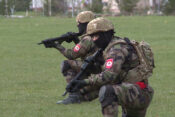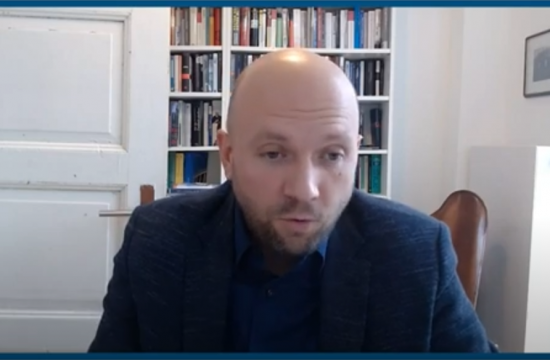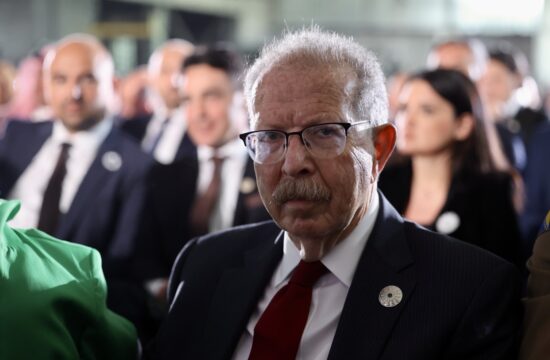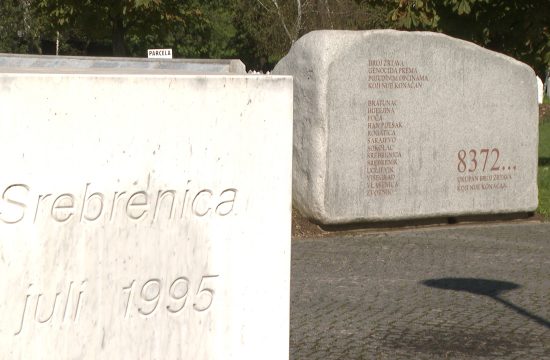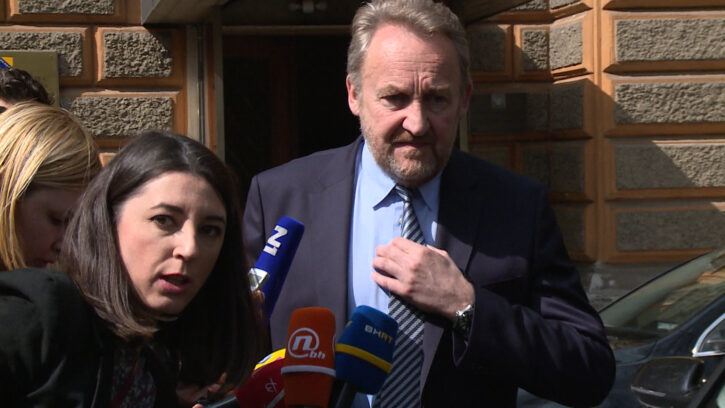
The main Bosniak party in the country asked its members holding public offices on Friday to launch an initiative for the establishment of an auxiliary police unit in Bosnia’s Federation (FBiH) entity after the other semi-autonomous part of Bosnia, Republika Srpska (RS), adopted a draft of law changes which establish such a unit there.
The Party for Democratic Action (SDA) also asked its members to initiate a procedure to fill all the positions in the current police in FBiH and its Cantons and to equip them.
“Since the Interior Ministry and the National Assembly of the RS entity have ignored warnings and appeals by domestic and some international officials, and adopted the draft law which established a reserve police unit in the RS entity, we consider that such a response is necessary and the only correct one, so that the balance of police forces is not disturbed,” the SDA said in a statement.
The SDA emphasised that it will do everything it can to have a provision in the new RS law which enables the issuing of fake Bosnian documents that would allegedly serve in police operations removed.
“Such a provision violates the current laws and police standards and opens the door for all kinds of misuse that would endanger the security,” the party said.
The head of the Commission for Security in the FBiH House of Representatives, Damir Masic, scheduled an extraordinary session for April 23 where the RS National Assembly decision and responses to it will be discussed.
The SDA proposal immediately received support from other parties in FBiH, such as the left-leaning Democratic Front (DF).
In a statement, the DF appealed to international institutions, within the country to stop the RS from establishing its auxiliary unit.
If this is not stopped, “we will be forced to initiate the adoption of a law for the territory of FBiH as well, but one which will be in accordance with the Dayton Agreement (which ended Bosnia’s 1992-1995 war and contains the country’s Constitution),” the party said.
If the new RS police unit will be composed of some 1,000 new officers, than FBiH reserve unit should count some 2,500 new officers, it said.
“That does not mean that we are not aware of the fact that the average number of police officers per citizen in the EU is 318 to 100 000 while the average in Bosnia is currently higher than that, namely 436 officers on 100,000 citizens,” the party said, adding that Bosnia would have to spend tens of millions of BAM to equip, train and employ those officers.
Nevertheless, the party said the move would have to be made “so that we don’t face the same consequences as during the period of the beginning of the 1990s.”
The Union for a Better Future (SBB) also expressed support for the initiative, saying that it is an “appropriate” response to what the RS is doing.
“The political establishment in the RS needs to understand that such moves will not go by without an adequate and united response by the patriot forces of Bosnia and Herzegovina,” the SBB said.
The office of Bosnia's High Representative, the international official who oversees the implementation of the 1995 Dayton Peace Agreement which ended Bosnia’s war, said in a statement to media that “the reason for the existence of a reserve police unit (in Republika Srpska) is unclear,” but reminded that “the establishment a reserve unit must fit the needs which are within the competency of the RS.”
The OHR called upon the RS National Assembly to “respond to these objections, as well as to the concerns which certain political and civil society actors have expressed, in a transparent way” and to ensure that the proposed changes fully meet international standards and the Dayton Peace Agreement.

